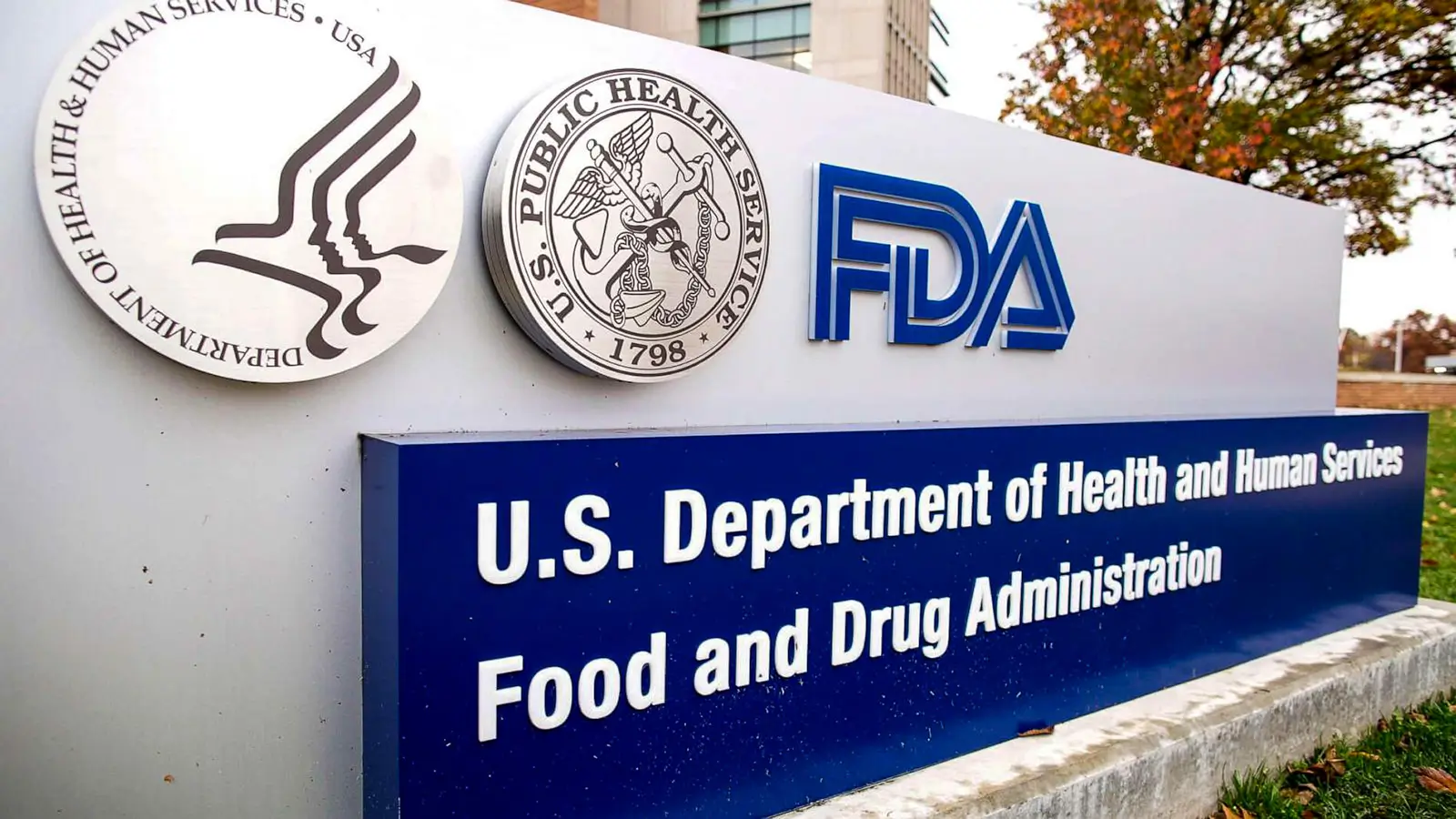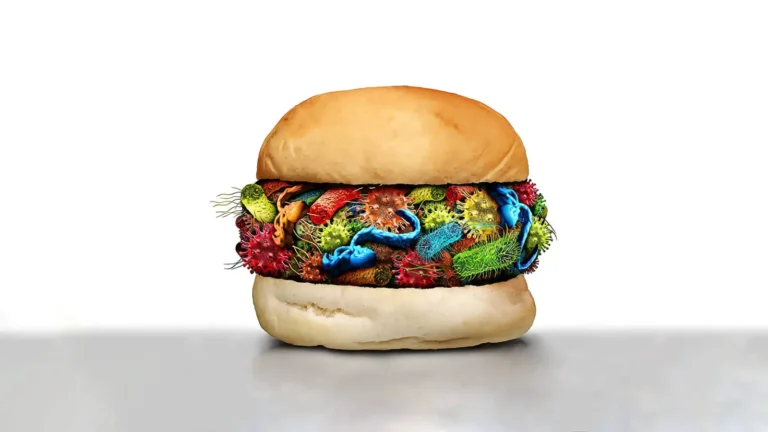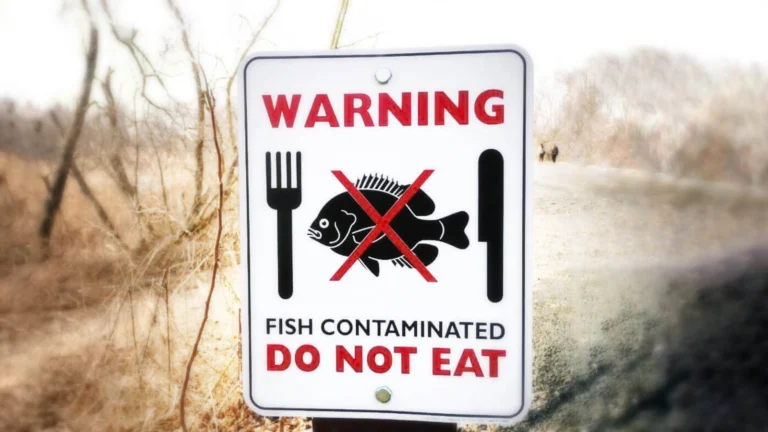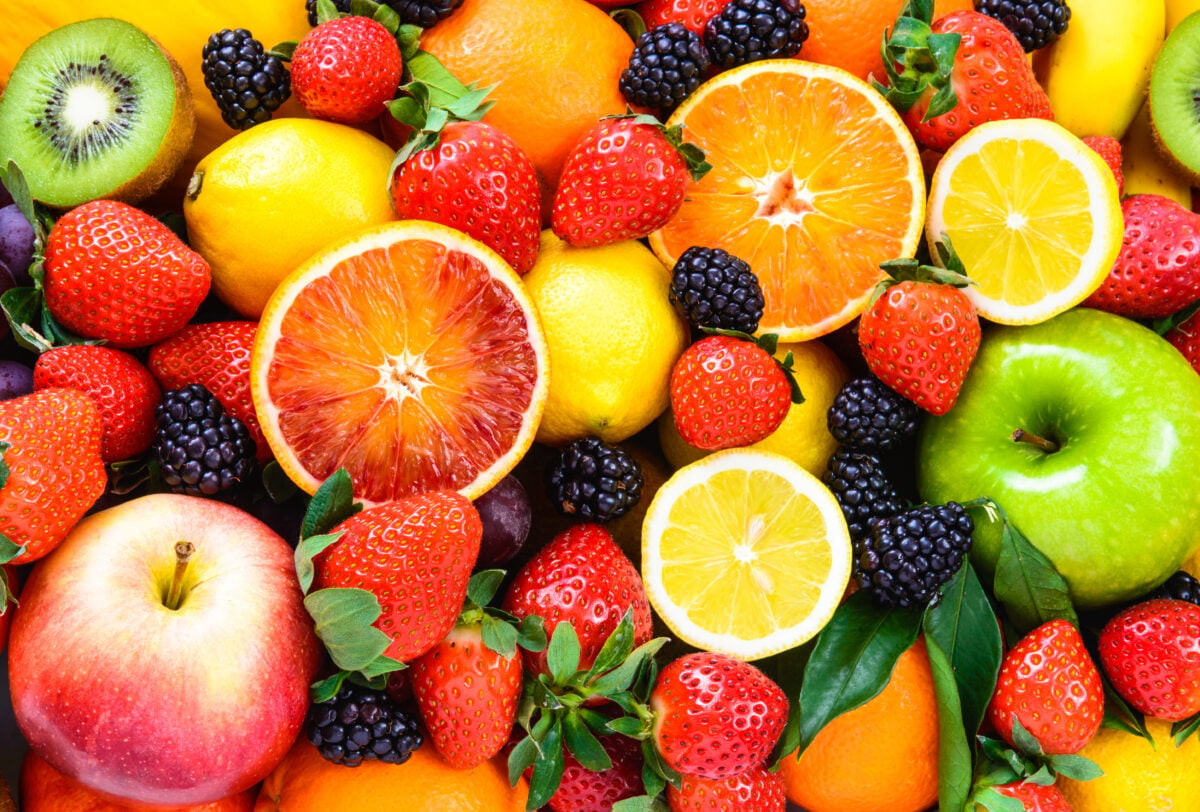The tale of Big Pharma- Fritz ter Meer, UN, and Codex Alimentarius
The worst-case scenario for Codex Alimentarius, if it were to be implemented, is complete suppression of vitamin, mineral, and other supplements.
Milos Pokimica
Written By: Milos Pokimica
Medically Reviewed by: Dr. Xiùying Wáng, M.D.
Updated June 9, 2023Fritz ter Meer, born in 1884, was a board member of IG Farben from 1925. Fritz ter Meer was the son of Edmund ter Meer (1852–1931), who established the chemical company Teerfarbenfabrik Dr. E. ter Meer & Cie in Uerdingen. This company was included in 1925 as a part of IG Farben. He was personally included in the preparation of the Monowitz concentration camp.
It was a new Auschwitz camp constructed for I.G. Farben. He was also responsible for helping build the IG Farben Buna Werke factory at Auschwitz, which conducted human experiments both for the war effort and for developing new drugs for IG Farben and held some 25,000 slave laborers under deplorable conditions. Meer was tried at the Nuremberg IG Farben Trial and was sentenced to seven years’ imprisonment. Which is nothing for the war crimes he was accused of and was involved in. When he was questioned whether he had thought the tests on live people in Auschwitz are justified, he answered that this was irrelevant:
“They were prisoners thus no particular harm was inflicted, as they would have been killed anyway.”
Well, no lies there but also a high level of psychopathy. Fritz ter Meer and twenty-six other I. G. Farben implies stayed strongly engaged in what the Germans called “the killing of useless eaters” or people who are alive but not deserving to live. They produced the compounds like the gas, Zyklon B, used to kill prisoners. However, you already by now know this. What you do not know is that during a time in prison, Fritz ter Meer theorized that using food as a weapon was the key to achieving world domination. He concluded that: “He who controls food, can control the world.” He was right completely. By the guidance of Nelson Rockefeller, Fritz ter Meer’s, and all other sentenced IG Farben managers were “rescued” from jail already in 1952. Not only that, they had reassumed positions in the highest levels of German industry. After his release war, criminal Fritz ter Meer was appointed jet again as a board member of Bayer in 1955 and, in 1956 was appointed a chairman of Bayer Pharmaceuticals. Like nothing had happened. He died in 1967 and what Bayer did? Bayer named the student foundation after him. He had a plan forged in prison. He assembled all of the executives of former I. G. Farben, recommending a greater plan. They agreed and wrote a letter to urge the United Nations to take over the regulation of world food. Fifteen years after the Nuremberg War Crimes Tribunal they were planning world food domination as an act of population control. This actually happened.
The UN response was “what a good idea.”
As a response to a letter and political pressure in 1962, the Codex Alimentarius Commission was formed. In 1963, already they started to create the standards and guidelines that we are going to be obligatory in the future. They began to regulate everything that goes into your mouth: water, food, minerals or vitamins, or something else. If it goes into your mouth, then there is a standard for it. However, in reality, they have different agenda that is different from the public one of protecting the consumers. Codex Alimentarius, for example, allows pesticides, GMOs (genetically modified organisms), irradiation of food, and restricts supplements. For example, in July of 2007, the Codex Alimentarius Committee on pesticides brought back seven of the nine banned and deadliest known pesticides in the world. The U.S. is as I write this constructing 200 radiation plants to irradiate every bite of food so that the U.S. can be in line with Codex Alimentarius guidelines. Here is one more example. FDA analysis and other studies have always shown that consumers do not like to buy genetically modified or irradiated food. The FDA to correct this false, unscientific opinion of stupid consumers wants to prevent the consumers from making the wrong choice. FDA believes that truthful labeling would be false and misleading.
Truth is false. That is Orwellian doublespeak. FDA believes that they know how to take care of you instead of you. Your life is in the hand of certified professionals. It is not your choice.
In another word, Codex Alimentarius forbids the labeling of GMOs.
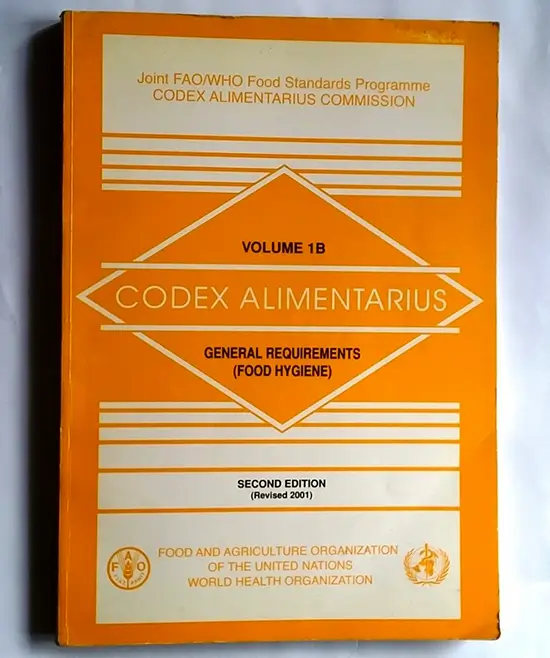
You might don’t know this but when you buy meat or any other product if it is GMO or irradiated you would not know that because there is no labeling. If you know how in reality things are done and you know all the connections between the Rockefellers and the UN, as well as the common belief system of eugenics and population reduction, then you can understand the policies of eugenics that had been written in the architecture of Codex Alimentarius. The plans of a one-world global society built upon eugenics were not born with Adolph Hitler, and they certainly did not die with him. Codex Alimentarius, after all, is an organization created under the FAO and WHO, which are both under the jurisdiction of the UN.
The connections between the pharmaceutical industry, medical establishments, and their agenda pushed under the umbrella of the UN for the destruction of the natural healthcare industry, and natural supplement access is the finishing blow in a war on plants that last for more than 100 years by now.
The worst-case scenario for Codex Alimentarius, if it were to be implemented, is complete suppression of vitamin, mineral, and other supplements. How are they going to do it? They are going to decide what is standard and what can be produced. So if they decide that RDA for some vitamins is in the range, they like any supplement that has higher potency will be dangerous for health and will be forbidden for manufacturing and sale as a dangerous product. All of the high-potency dietary supplements that we can buy today will be no longer on the market. What you would see are low-potency supplements that don’t do anything. Codex Alimentarius is going along with the industry by pushing GMOs, poisoning us with Melamine, and poisoning us with Ractopamine led alone fluoride but have a big concern with overdosing on vitamins.
The move by Codex Alimentarius to put maximum permissible limits on vitamins is what? What is it? Evil agenda or consumer protection? I am paranoid, so I know my answer.
The levels they want are so small that they are below the line for the prevention of chronic deficiency diseases. For example, I take around 5000 IU of vitamin D daily. The maximum level permitted by Codex Alimentarius is 10 IU. Ten. One more thing.
If I believe that there are studies that had showed that the amount of 5000 IU vitamin D daily is most beneficial I am not allowed to read them or have access to them because an official medical line is different and they are concerned that consumers will hurt themselves. So anything that is different from the medical line of accepted medicine is forbidden to be spread as a health danger and hazard.
Free speech is an American fantasy, soon to be over. The Codex Alimentarius forbids this article as well.
You as a consumer would never know what is going on and eventually you as an uninformed individual will accept that yes 10 IU of vitamin D3 is a good thing. Anything above is illegal. I do not know about the general public and general complacency with all of this but when I read Codex Alimentarius or other UN agendas like Agenda 21 all I see as a paranoid individual is the stuff of horrors. And this is just part of the prolonged war that had been going on for a long time now. And it is not just plants that are a problem because they cannot be patented. It is more than that. Every real cure that destroys the disease in its roots to never return is not something the industry wants even if it can be patented. They do not want cures they just want treatments that can prolong life a little.
References:
Passages selected from a book: Pokimica, Milos. Go Vegan? Review of Science Part 2. Kindle ed., Amazon, 2018.
Related Posts
Do you have any questions about nutrition and health?
I would love to hear from you and answer them in my next post. I appreciate your input and opinion and I look forward to hearing from you soon. I also invite you to follow us on Facebook, Instagram, and Pinterest for more diet, nutrition, and health content. You can leave a comment there and connect with other health enthusiasts, share your tips and experiences, and get support and encouragement from our team and community.
I hope that this post was informative and enjoyable for you and that you are prepared to apply the insights you learned. If you found this post helpful, please share it with your friends and family who might also benefit from it. You never know who might need some guidance and support on their health journey.
– You Might Also Like –

Learn About Nutrition
Milos Pokimica is a doctor of natural medicine, clinical nutritionist, medical health and nutrition writer, and nutritional science advisor. Author of the book series Go Vegan? Review of Science, he also operates the natural health website GoVeganWay.com
Medical Disclaimer
GoVeganWay.com brings you reviews of the latest nutrition and health-related research. The information provided represents the personal opinion of the author and is not intended nor implied to be a substitute for professional medical advice, diagnosis, or treatment. The information provided is for informational purposes only and is not intended to serve as a substitute for the consultation, diagnosis, and/or medical treatment of a qualified physician or healthcare provider.NEVER DISREGARD PROFESSIONAL MEDICAL ADVICE OR DELAY SEEKING MEDICAL TREATMENT BECAUSE OF SOMETHING YOU HAVE READ ON OR ACCESSED THROUGH GoVeganWay.com
NEVER APPLY ANY LIFESTYLE CHANGES OR ANY CHANGES AT ALL AS A CONSEQUENCE OF SOMETHING YOU HAVE READ IN GoVeganWay.com BEFORE CONSULTING LICENCED MEDICAL PRACTITIONER.
In the event of a medical emergency, call a doctor or 911 immediately. GoVeganWay.com does not recommend or endorse any specific groups, organizations, tests, physicians, products, procedures, opinions, or other information that may be mentioned inside.
Editor Picks –
Milos Pokimica is a doctor of natural medicine, clinical nutritionist, medical health and nutrition writer, and nutritional science advisor. Author of the book series Go Vegan? Review of Science, he also operates the natural health website GoVeganWay.com
Latest Articles –
Plant Based News
-
Vegan Mini Flank Galettes With Caramelized Onion & Pear
on November 25, 2025
-
Sprout Power: Boost Digestion, Protein, and Energy with Homemade Lentils
on November 25, 2025
-
Lidl Calls For Mandatory Plant-Based Targets To ‘Level The Playing Field’
on November 25, 2025
-
Vegetarian Society Reports ‘Significant Rise’ In Brands Adopting Plant-Based Certification
on November 24, 2025
-
10 High-Protein And Gluten-Free Vegan Recipes
on November 24, 2025
-
Gambian Stew With Easy Peanut Hummus (Domoda)
on November 23, 2025
-
National Diabetes Month: 65% Of Americans Open To Preventative Plant-Based Diets
on November 23, 2025
Top Health News — ScienceDaily
- The body trait that helps keep your brain youngon November 25, 2025
Scientists discovered that more muscle and less hidden abdominal fat are linked to a younger biological brain age. Deep visceral fat appeared to accelerate brain aging, while muscle mass offered a protective effect.
- How personalized algorithms trick your brain into wrong answerson November 25, 2025
Personalized algorithms may quietly sabotage how people learn, nudging them into narrow tunnels of information even when they start with zero prior knowledge. In the study, participants using algorithm-curated clues explored less, absorbed a distorted version of the truth, and became oddly confident in their wrong conclusions. The research suggests that this kind of digital steering doesn’t just shape opinions—it can reshape the very foundation of what someone believes they understand.
- Scientists reveal a hidden alarm system inside your cellson November 25, 2025
Ribosomes don’t just make proteins—they can sense when something’s wrong. When they collide, they send out stress signals that activate a molecule called ZAK. Researchers uncovered how ZAK recognizes these collisions and turns them into protective responses. The discovery shows how cells quickly spot trouble.
- Cocoa and tea may protect your heart from the hidden damage of sittingon November 25, 2025
Scientists found that high-flavanol foods can prevent the decline in blood vessel function that occurs after prolonged sitting. Even physically fit men weren’t protected unless they had consumed flavanols beforehand. A cocoa drink rich in these compounds kept arteries functioning normally. Everyday foods like berries, apples, tea, and certain cocoa products could offer a simple way to protect long-term vascular health.
- Vegan diet beats Mediterranean for weight loss even with potatoes and grainson November 24, 2025
Participants lost more weight on a low-fat vegan diet than on the Mediterranean diet, largely due to eliminating animal foods and reducing oils and nuts. Increased intake of plant foods, even “unhealthy” ones, was strongly associated with greater weight loss.
- Scientists find hidden switch that lets tumors shapeshift and evade treatmenton November 24, 2025
Scientists are uncovering what makes some carcinomas so resistant: their ability to change identity. Two new studies reveal crucial proteins and structures that could become targets for future therapies. These discoveries deepen understanding of how tumors reprogram themselves and point toward highly specific treatments. The work raises hopes for safer, more selective cancer drugs.
- Scientists find a hidden weak spot that may trigger Alzheimer’son November 24, 2025
Scientists have found that a mutation tied to Alzheimer’s disrupts the production and quality of exosomes—tiny cell-made communication packets. Cells with the defective SORLA protein generate fewer exosomes and ones far less able to support nearby brain cells. This weakness may be a key driver of Alzheimer’s development. The research points to new treatment strategies that enhance or restore exosome function.
PubMed, #vegan-diet –
- The German LAKE-score reliably predicts urinary and dietary potential renal acid load: a three-armed translational studyon November 25, 2025
CONCLUSION: The German version of the LAKE score is a rapid, inexpensive and feasible tool for an initial PRAL evaluation in a clinical context, characterized by a good validity and reliability. Results suggest that the German LAKE score could be suitable as an estimate for an individual’s PRAL, and could also guide clinicians to make dietary recommendations and monitor PRAL-relevant changes in individual patients.
- Biological versus Technical Reliability of Epigenetic Clocks and Implications for Disease Prognosis and Intervention Responseon November 24, 2025
DNA methylation-based aging biomarkers, or epigenetic clocks, are increasingly used to estimate biological age and predict health outcomes. Their translational utility, however, depends not only on predictive accuracy but also on reliability, the ability to provide consistent results across technical replicates and repeated biological measures. Here, we leveraged the TranslAGE platform to comprehensively evaluate the technical and biological reliability of 18 Epigenetic clocks, including…
- Learning molecular fingerprints of foods to decode dietary intakeon November 24, 2025
Assessing dietary intake from biological samples provides critical objective insights into nutrition and health. We present a reference-based strategy using untargeted metabolomics to estimate relative dietary composition. The approach learns food-specific molecular ion features first – both annotated and unannotated – via supervised classification and discriminant analysis. These features then guide extraction of corresponding MS1 intensities from unknown samples, enabling proportional,…
- Eating within planetary boundaries – a cross-country analysis of iodine provision from the EAT-Lancet dieton November 24, 2025
The EAT-Lancet Commission’s 2019 reference diet promotes health and environmental sustainability through predominantly plant-based foods, raising concerns about micronutrient adequacy, particularly iodine. This study evaluated the iodine content of the EAT-Lancet diet across sixteen countries using national food composition data. Iodine intake was modelled under three scenarios: (1) strict adherence to specified food items; (2) inclusion of a broader range of foods within each group; and (3) […]
- Vegetarian and Vegan Diets and the Risk of Hip Fracture in Adults: A Systematic Review and Meta-analysison November 23, 2025
CONCLUSION: These findings emphasize the importance of incorporating dietary patterns into strategies for promoting bone health, especially among individuals following plant-based diets. Healthcare providers should offer guidance to individuals adopting vegetarian or vegan diets to ensure adequate nutrient intake and support bone health.
Random Posts –
Featured Posts –

Latest from PubMed, #plant-based diet –
- Impact of Healthy Diet Shifts on Soil Greenhouse Gas Emissions Across Europeby Vasilis Michailidis on November 25, 2025
Shifting towards healthy, plant-based diets is widely recognized as a strategy to reduce greenhouse gas emissions (GHG) from food systems, primarily through reduced methane emissions from livestock. However, the implications of this transition for soil-based GHG emissions, a major contributor to climate change, remain uncertain. We used the MAGNET economic model and the DayCent biogeochemical model to assess the impacts of dietary shifts aligned with the EAT-Lancet guidelines on soil organic…
- Plant-based diets especially healthy ones are negatively associated with depression: a cross-sectional studyby Bao Zhang on November 25, 2025
CONCLUSIONS: Plant-based diets, especially when they are enriched with healthier plant foods, may be beneficial for primary prevention of depression. However, plant-based diets that emphasize less healthy plant foods are associated with higher depression levels among US adults.
- The German LAKE-score reliably predicts urinary and dietary potential renal acid load: a three-armed translational studyby Maximilian Andreas Storz on November 25, 2025
CONCLUSION: The German version of the LAKE score is a rapid, inexpensive and feasible tool for an initial PRAL evaluation in a clinical context, characterized by a good validity and reliability. Results suggest that the German LAKE score could be suitable as an estimate for an individual’s PRAL, and could also guide clinicians to make dietary recommendations and monitor PRAL-relevant changes in individual patients.
- Taxonomic and functional shifts in the rumen microbiome of buffalo calves under long-term strategic supplementation of phyto-feed additivesby Pramod Kumar Soni on November 24, 2025
INTRODUCTION: The present study aimed to understand the shift in the rumen microbiome of buffaloes fed diets with and without phyto-additives. The rationale was based on the hypothesis that plant-based additives can modulate the microbial population in the rumen, potentially reducing methane production and enhancing fiber degradation. Given the possibility that prolonged use of the same additives may lead to microbial adaptation and diminished efficacy, the study also investigated the effects […]
- Anti-Cancer, Anti-Inflammatory, and Analgesic Effects of Taxus wallichaina Extracts and Its Biosynthesized Silver Nanoparticlesby Fazli Hadi on November 24, 2025
This study investigates the green synthesis of silver nanoparticles (AgNPs) using Taxus wallichiana Zucc. and evaluates their pharmacological potential. Taxus wallichiana, a medicinal plant rich in bioactive compounds, was utilized to synthesize AgNPs in an eco-friendly manner, leveraging phytochemicals as reducing and stabilizing agents. Characterization techniques, including UV-Vis spectroscopy confirmed the peak at approximately 430 nm, reaching its maximum at 0.72 with significant surface…
- Associations of Sociodemographic Factors, Lifestyle Habits, and Insomnia Severity with Obesity Indices in Spanish Workers: Sex-Specific Differencesby José Luis Ribes Valles on November 24, 2025
Background: Obesity and insomnia are prevalent public health issues with shared behavioral and physiological pathways. However, their interplay remains understudied in occupational cohorts. Obesity and insomnia are prevalent public health issues with shared behavioral and physiological pathways. However, their interplay remains understudied in occupational cohorts. This study aimed to evaluate the associations of sociodemographic factors, lifestyle habits, and insomnia severity with multiple…









